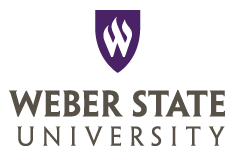 |
PPM 9-9, Due Process General Statement |
|
|
Responsible Office: Academic Affairs |
1.0 PURPOSE
This policy provides a general statement of due process as used in PPMs 9-9 through 9-18.
2.0 REFERENCES
2.1 PPM Section 9, Academic Freedom, Rights, Responsibilities, and Due Process
3.0 POLICY
3.1 Due process in an academic setting is a system of procedures designed to produce fair and reasonable judgments in those situations in higher education which may yield a serious adverse decision about a faculty member. In tenure and promotion decisions, these judgments of the Faculty Board of Review will be confined to examining the reasonableness of the process, rather than the reasonableness of the decision. In particular, it should consider if the total process meets the requirements set forth in the next paragraph. In cases other than tenure and promotion, judgments will be made on the basis of both substantive and procedural issues. In general, due process seeks a clear, orderly and fair way of rendering decisions by providing procedural safeguards or procedural guarantees. Due process furnishes the structure for a wise and fair administration of justice in institutions of higher learning. It may be initiated by a faculty member against an administrator(s) or the University in guaranteeing the protection of the faculty member’s academic freedom and rights. This process presupposes that the complainant has not found acceptable recourse from the respondent or through other informal processes.
Essential elements of procedural due process may include:
3.1.1 adequate notice of the charges or basis of action;
3.1.2 an impartial decision maker;
3.1.3 an opportunity to make an oral presentation to the decision maker;
3.1.4 an opportunity to present evidence or witnesses to the decision maker;
3.1.5 a chance to confront and ask questions of witnesses and review evidence to be used against the individual;
3.1.6 the right to have a representative present the individual’s case to the decision maker; and
3.1.7 a decision based on the record with a statement of reasons for the decision.
Examples of due process violations include evaluations of teaching, service or scholarship that are unsupported by any substantial evidence and also promotion or tenure recommendations that are arbitrary or capricious. In no case, however, may the Faculty Board of Review make its own evaluations of teaching, service or scholarship or make its own promotion or tenure recommendations. Rather, the essential role of the Faculty Board of Review is to look for prejudicial failures of due process. “Prejudicial” failures of due process amount to more than harmless error but rise to the level of deficiencies in process that might have resulted in an opposite recommendation in the case at hand.
Revision History
Creation Date: 7-2-92
Amended: 3-7-74, 5-22-24
